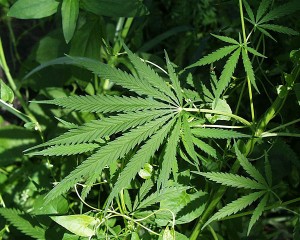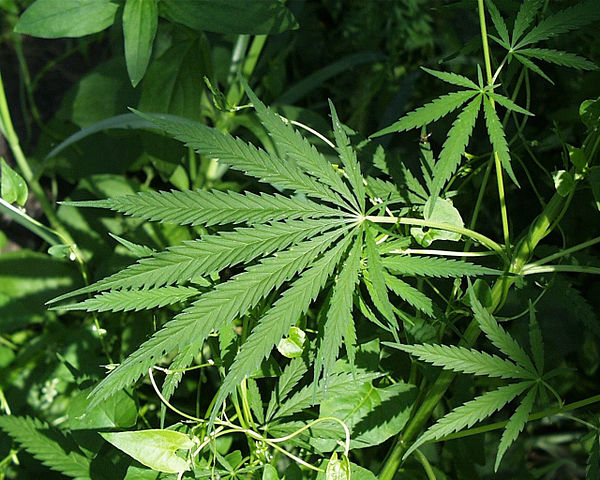This post is also available in Dutch.
The medical benefit of weed is a popular debate at the moment. This wasn’t always the case; for thousands of years weed was used as a treatment for many medical conditions, and only a century ago did its use become a criminal offense. Now, again, we observe an increased acceptance for weed as an alternative treatment for some conditions. However there is still a medical and societal debate on whether weed should be offered to patients suffering from mood disorders. Some evidence indicates that weed contributes to the development of certain mood disorders but the majority of anxiety patients claim that nothing but weed works to relieve their symptoms. Is this a myth or truth?

By United States Fish and Wildlife Service [Public domain], via Wikimedia Commons
For a long time, nobody knew how weed (or ‘cannabis’) worked. Only two decades ago, did researchers discover that the brain produces its own cannabis, referred to as ‘endocannabinoid’ (endo = inside the brain; parts of the brain involving cannabis is referred to as the endocannabinoid system). We now know that weed has a chemical structure that resembles the endocannabinoids, and thus mimics its actions in the brain. The endocannabinoid system is involved in many functions in the body and the brain. This means that weed can affect a wide range of physiological functions from appetite, to sleep, to pain. On this basis, weed is a medicine prescribed to relieve pain, increase sleep or increase appetite. In the last decade, scientists (such as those here at the Donders) have discovered that the endocannabinoid system is involved in many more functions including cognition, and the regulation of stress and anxiety. However, it remains an ongoing debate as to whether weed would be helpful in treating health conditions that involve alterations in these functions.
Weed made its way out of a crime but then what?
The prescription of weed is limited to patients in terminal condition or in high discomfort even though these are not the only conditions under which weed can provide. Patients suffering from traumatic stress and anxiety claim that the typically prescribed drugs are useless and that smoking weed was the only thing that relieved their symptoms. Studies have repeatedly shown that cannabinoid receptors are present in areas of the brain involved in anxiety and stress, and the activation of these receptors can dampen anxiety by suppressing the activity of these brain regions. These studies suggest that trauma and stress can compromise the endocannabinoid system and that this might lead to mood problems or exaggerated remembering of traumatic experiences. Smoking weed, however, could compensate for the lower endocannabinoid activity and help with forgetting the trauma. So, even when weed has not been prescribed by a health professional, these patients continue to treat themselves with weed, and now there appears to be scientific evidence supports its beneficial effects. But is it safe after all?
GO natural, boosts your brain cannabis!
There is no definitive answer on how safe weed is as a treatment because it depends on the amount and frequency that is consumed. What we do know is that those who smoke extensively and frequently run the risk of reducing the natural release of endocannabinoids in the brain. This can become a visible problem when they attempt to quit weed, because the insufficient production of natural cannabinoids (endocannabinoids) can cause serious mood alterations, depression, over worry and stress. This, unfortunately compromises the safety of weed as a treatment. A safer alternative to weed might be to naturally boost the endocannabinoids while maintaining the balance of endocannabinoids in brain. Examples for how to safely boost the endocannabinoid activity includes high activity sports such as running or swimming, and diets rich in chocolate, vitamin E or green tea, which are natural boosters of the endocannabinoid system.
Read more (english):
Short film on veterans use of marijuana for PTSD
CBC news article on medical use of marijuana for trauma program
Scientific study showing that cannabinoids can play a role in stress-related disorders
How to enhance your endocannabinoid system
This blog post was written by Piray Atsak.
Edited by Mahur and Nietzsche
